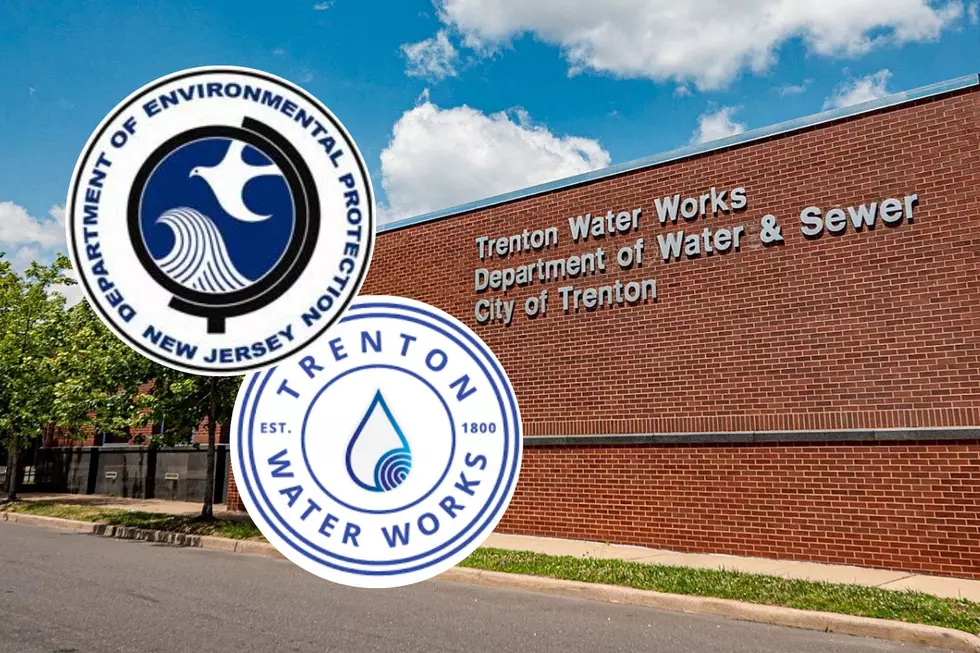
Water Danger – Legionnaire’s disease found in Mercer County, NJ
🔺 Health officials reveal multiple new cases of Legionnaires' disease in Mercer County
🔺 Two of the infected have died
🔺 Tips to avoid exposure
The New Jersey Department of Health is confirming another seven cases of Legionnaires' disease in Mercer County, including two deaths.
All were customers of the Trenton Water Works (TWW). The cases were reported between October 2022 and March 2023.
Health officials and the Department of Environmental Protection have been investigating Legionnaires' contamination as well as operations at Trenton Water Works since last year.
Local officials have been highly critical of TWW.
In October, 2022, Lawrence Township Mayor John Ryan begged the DEP to intervene. "For far too long, the customers of TWW have lived with the fear, and at times reality, that the water they drink daily is not safe," Ryan said.
At least one of the individuals diagnosed with a recent infection lived in Lawrence Township. The others were in Trenton, Ewing and Hamilton.
Health officials did not identify the infected individuals or say where the two people who died had residence.
"Health officials from NJDOH have briefed elected representatives at the local and State level on this matter and will continue to collaborate with them throughout this ongoing investigation," state health officials said in a statement.
How to decrease risk of exposure to Legionella
💧 According to NJDOH, individuals, particularly those at high risk, can follow the recommended steps below to decrease the risk of Legionella exposure and best practices to limit the growth of Legionella in household water systems and devices:
💧 Avoid high-risk activities. If you are at an increased risk for Legionnaires’ disease, consider avoiding hot tubs, decorative fountains, power washing, or similar activities, which may generate increased amounts of aerosols or mist. A conversation with your health care provider may help you assess your individual level of risk based on underlying health conditions and co-morbidities. Your health care provider may recommend that you consider installing specialty biological 0.2-micron filters on your showerhead if you are severely immunocompromised and receive water from Trenton Water Works.
💧 Maintain in-home medical equipment. If using medical equipment that requires water for use or cleaning such as non-steam generating humidifiers, CPAP or BiPAP machines, nasal irrigation devices such as Neti Pots, and attachments for nebulizers, follow manufacturer's instructions for use and maintenance. This often includes using sterile water instead of tap water in the device.
💧 Clean and/or replace your showerheads and faucet aerators (screens) per manufacturer's instructions whenever buildup is visible. This is particularly important if you haven't cleaned your showerheads or faucet aerators recently. Cleaning might require you to remove the showerhead and hose and soak in a solution (such as white vinegar or a bleach solution) to remove buildup. If using chemicals, follow instructions found on the back of the bottle for safe use.
💧 Keep your water heater set to a minimum of 120o F. This temperature will reduce Legionella growth and avoid potential for scalding (hot water burns). Setting the heater to a higher temperature may better control Legionella growth, especially if you have household members at increased risk for Legionnaires’ disease. However, if the temperature is set to greater than 120o F, make sure you take extra precautions to mix cold and hot water at the faucet and shower to avoid scalding. If you have household members at increased risk of scalding, such as young children or older adults, you may consider installing a thermostatic mixing valve. A mixing valve allows your water to be stored at a higher temperature within your water heater to help kill bacteria while eliminating concerns with water being too hot at sinks or showers. If you decide to install a mixing valve, be sure to follow manufacturer's instructions for routine cleaning and maintenance to avoid bacteria growth within the valve. Consider consulting with a licensed plumbing professional and ensure you are following your local codes and ordinances for home plumbing repairs.
💧 After cleaning showerheads and faucet aerators and increasing the temperature of the water heater, thoroughly flush the water at each tap (e.g., sink, showerhead) for 20 minutes. Try to minimize exposure to splashing and mist generation, for example, by leaving the room while the water is running.
💧 Conduct routine flushing. Sinks and shower taps that are not used often can increase the risk of Legionella growth in other areas of the home. Let your faucets and showers run for at least three minutes when they have been out of use for more than a week. Minimize exposure to splashing and mist generation, for example, by leaving the room while the water is running. Additionally, you may consider flushing your water following any water disruption to your home, such as low pressure or discoloration, resulting from a water main break or nearby hydrant flushing.
Additional tips for residents and buildings owners can be found at the New Jersey Department of Health website, or by clicking HERE.
Eric Scott is the senior political director and anchor for New Jersey 101.5. You can reach him at eric.scott@townsquaremedia.com
Click here to contact an editor about feedback or a correction for this story.

